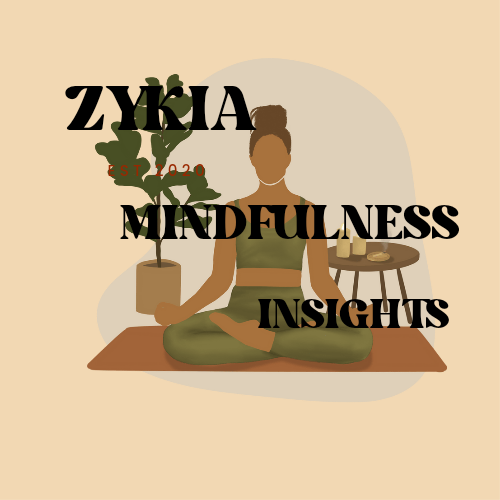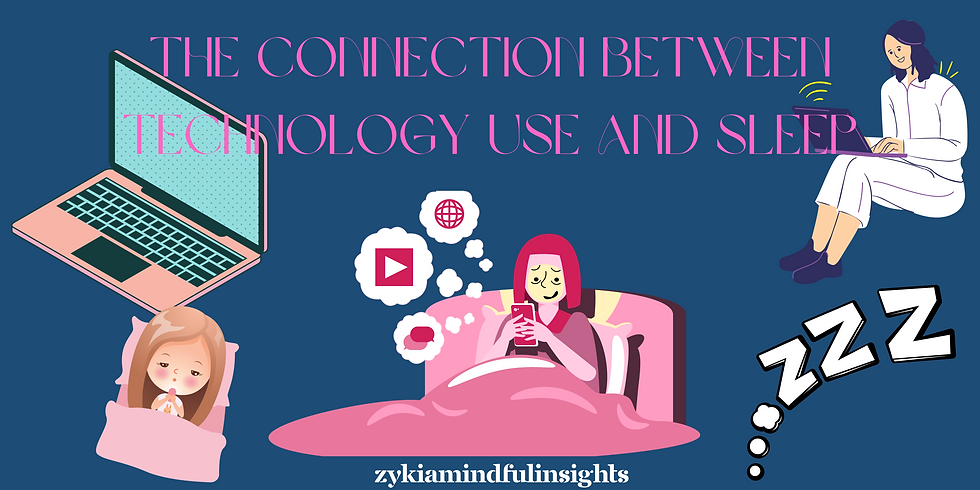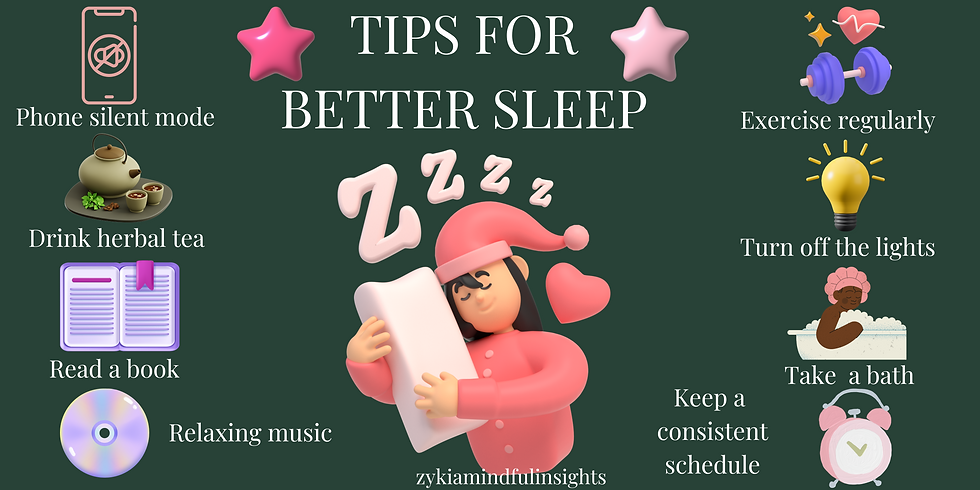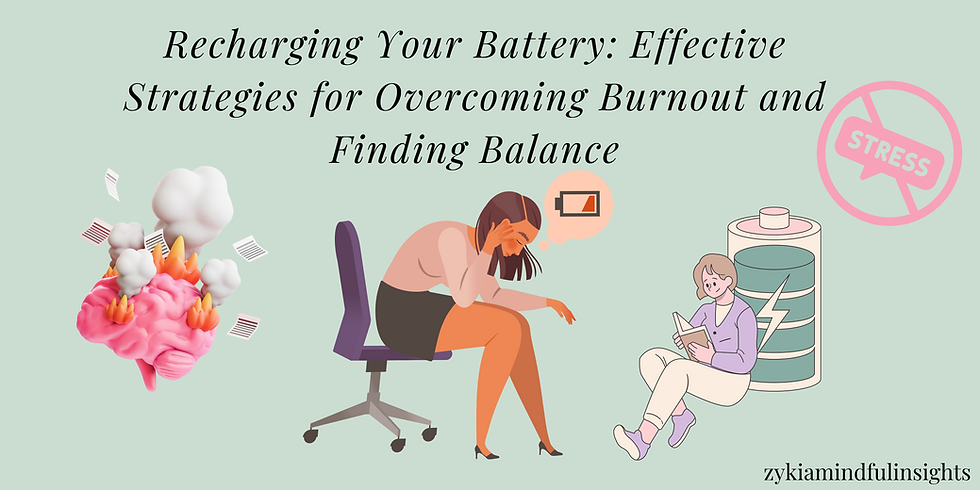The Connection between Technology use and Sleep
- Zykia Hannah

- Feb 19, 2024
- 5 min read
The relationship between technology use and sleep can be complex. On one hand, the use of technology, particularly screens like phones, tablets, and computers, can disrupt sleep patterns. This is because screens emit blue light, which can interfere with the production of melatonin, a hormone that regulates sleep. Furthermore, activities like gaming or watching videos before bed can be mentally stimulating and make it harder to fall asleep.
On the other hand, technology can also be used to improve sleep. For example, sleep-tracking apps and wearable devices can help users monitor their sleep patterns and make changes to improve sleep quality. There are also apps and devices that use white noise or calming sounds to help users fall asleep more easily.
Overall, the impact of technology on sleep can vary depending on how it is used and the individual's habits and preferences. It is important for individuals to be mindful of their technology use and its impact on their sleep, and to make adjustments as needed to improve their sleep quality.

Technology can play a role in addressing sleep disorders such as insomnia. Cognitive behavioral therapy for insomnia (CBT-I) is an evidence-based treatment that can be delivered remotely through technology. This approach typically involves a combination of techniques, including sleep restriction, stimulus control, and relaxation training. Several apps and online programs have been developed to deliver CBT-I, making this effective treatment more accessible to individuals who may not have access to in-person therapy.
On the other hand, the overuse of technology, particularly in the evening, can have a negative impact on sleep. Screen time can interfere with the body's natural circadian rhythms, leading to difficulties falling asleep or staying asleep. In addition, the blue light emitted by screens can suppress melatonin production, making it harder for individuals to feel sleepy at bedtime. For these reasons, experts recommend limiting screen time in the evening and creating a technology-free wind-down period before bed.
The relationship between technology use and sleep is complex and multifaceted. While technology has introduced new challenges for sleep, it also has the potential to be harnessed for good. By being mindful of our technology use and its impact on sleep, we can make informed choices that promote better sleep hygiene and overall well-being.
Can Blue Light Filters Help Sleep?
Yes, blue light filters can help improve sleep by reducing the exposure to blue light, which can interfere with the production of melatonin, a hormone that regulates sleep. Blue light filters, or blue light-blocking glasses, work by filtering out the blue light emitted by screens, such as smartphones, tablets, and computers. This can be particularly beneficial in the evening, when exposure to blue light can disrupt the body's natural circadian rhythms and make it harder to fall asleep.
In addition to blue light filters, there are also apps and built-in features on devices that can reduce blue light emissions. For example, many smartphones and tablets have a built-in "night mode" or "blue light filter" setting that can be activated in the evening to reduce the amount of blue light emitted by the screen. Some operating systems also have features that allow users to schedule the activation of the blue light filter based on the time of day.
Research has shown that blue light filters can be effective in improving sleep quality. One study found that participants who wore blue light-blocking glasses for two hours before bedtime had a significant increase in melatonin levels and an improvement in sleep quality compared to those who did not wear the glasses. Another study found that using a blue light filter on a tablet improved sleep quality and reduced symptoms of insomnia in older adults.
Overall, blue light filters can be a useful tool in promoting better sleep hygiene, especially for individuals who use screens in the evening. By reducing exposure to blue light, these filters can help regulate the body's natural sleep-wake cycle and improve overall sleep quality.
"The more we learn about the effects of technology on sleep, the more we realize just how crucial it is to unplug before bedtime." - Arianna Huffington

How Technology Can Be Harmful To Children's Sleep?
Technology can be especially harmful to children's sleep in several ways:
Exposure to Blue Light: The blue light emitted by screens can interfere with the production of melatonin, the hormone that regulates sleep. Children who use screens in the evening may have difficulty falling asleep or staying asleep.
Increased Mental Stimulation: Engaging in stimulating activities on screens, such as playing video games or watching videos, can make it harder for children to wind down and relax before bed. This can lead to difficulty falling asleep or disrupted sleep patterns.
Disruption of Sleep-Wake Cycle: The use of screens in the evening can disrupt children's natural sleep-wake cycles, making it harder for them to fall asleep at night and wake up in the morning.
Increased Risk of Sleep: Children who use screens before bedtime are more likely to experience sleep problems, such as difficulty falling asleep, disrupted sleep, and daytime sleepiness.
Impact on Mental Health: Excessive screen time can also have a negative impact on children's mental health, leading to increased stress, anxiety, and depression, all of which can further exacerbate sleep problems.
Overall, while technology can provide many benefits, it is important for parents to be mindful of its potential impact on their children's sleep. Limiting screen time in the evening and encouraging other relaxing activities before bed can help promote healthy sleep habits and overall well-being.
What Are Some Great Sleep Tracking Apps You Can Use?
Some great apps that you can use to track your sleep are:
BetterSleep: Relax and Sleep
Calm
HeadSpace
SleepWatch
Shuteye
Sleep
You can download these apps through the app store and google play store 🩷💤
How Long Before Bed Should My Child Stop Using Electronic Device?
It is generally recommended that children stop using electronic devices, such as smartphones, tablets, and computers, at least one hour before bedtime. This is because screens limit blue light, which can interfere with the production of melatonin, a hormone that regulates sleep. Exposure to blue light in the evening can make it harder for children to fall asleep or stay asleep, disrupting their natural sleep-wake cycle.
In addition to reducing screen time in the evening, it can also be helpful to encourage other calming activities before bed. This can include reading a book, taking a warm bath, or practicing relaxation exercises. Creating a relaxing bedtime routine can help signal to your child's brain that it is time to wind down and prepare sleep.
It is important to be consistent with the bedtime routines and screen time limits, as this can help establish healthy sleep habits for your child. By being mindful of screen time and promoting a calming bedtime routine, you can help your child get the rest they need for overall health and well-being.
What Are The Health Risks of Electronics Regarding Sleep?
While using electronics is important for both work purposes and entertainment, there are long-term patterns of sleep disruption that can begin to affect health, such as:
an elevated risk of hormone-related cancers
lower levels of leptin, which signals fullness after meals and can contribute to overeating and obesity metabolic changes, especially blood sugar
Danger of Sleep Deprivation:
Over time, when a person does not get enough sleep, it could lead to some dangerous risks and other health problems. Some dangers include the increased risk of:
hypertension
diabetes
obesity
depression
heart attack
stroke
In summary, the overuse of electronics, particularly in the evening, can have several health risks regarding sleep. The blue light emitted by screens can disrupt circadian rhythms, increase sleep onset latency, reduce melatonin production, and lead to poor mental health and an increased risk of sleep disorders. However, there are strategies that can help mitigate these risks, such as limiting screen time before bedtime, using blue light filters, and promoting a calming bedtime routine. By being mindful of our technology use and its impact on sleep, we can make informed choices that promote better sleep hygiene and overall well-being.
🤍Quote of the day:
"We grow through what we go through." - Tyrese Gibson 🩷




Comments